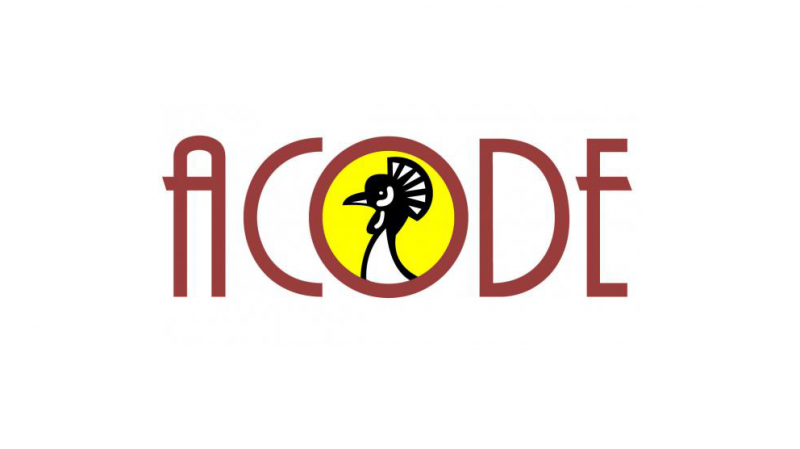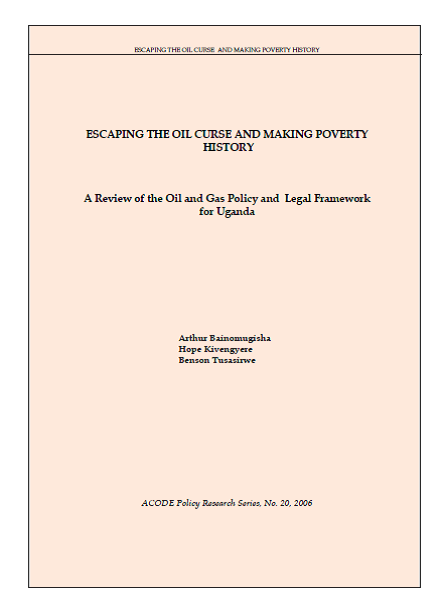Location
Kampala
Uganda
Advocates Coalition for Development and Environment (ACODE) is an independent public policy research and advocacy think tank based in Uganda working in East and Southern Africa. ACODE was first registered in 1999 as a Non-governmental organization (NGO). In 2004, the organization was incorporated as a company limited by guarantee and without having a share capital. ACODE is one of the most dynamic and robust regional leaders in cutting-edge public policy research and analysis in a range of areas including governance, trade, environment, and science and technology. ACODE has, for the last four consecutive years, been ranked in the Global Go To Think Tank Index as one of the best think tanks in Uganda and one of the top think tanks in the world. Think Tanks in Africa continue to play a major role in policy development and implementation. The Advocates Coalition for Development and Environment (ACODE) has been ranked 23 out of 92 Top Think Tanks in Sub-Saharan Africa and 29 out of 90 globally with Best Advocacy Campaign in the 2015 Global Go To Think Tank Index Report (TTI), led by the University of Pennsylvania through its Think Tanks and Civil Societies Program (TTCSP).
ACODE is non-partisan and independent and therefore does not align with any political party or political organisation. However, given the direct relationship between development policy and politics, we believe that our work is political and it must stand for certain political causes of a bi-partisan nature. Such causes are legitimate issues of research interest so long as they are defined on the basis of constitutionalism, the rule of law as well as national and regional interests as expressed in the relevant treaties, strategy documents and declarations. ACODE's work is based on three broad programmes areas: Environmental Democracy, Peace and Democracy, and Innovation and Biotechnology Policy. Our core business is to undertake advocacy-driven public policy research and analysis on contemporary and emerging public policy and governance issues that have a significant impact on national development.
Members:
Resources
Displaying 41 - 45 of 51The Dynamics of Social Capital and Conflict Management in Multiple Resource Regimes
Increasingly, social capital, defined as shared norms, trust, and the horizontal and vertical social networks that facilitate coordination and cooperation for mutually beneficial collective action, is seen as an important asset upon which people rely to manage natural resources and resolve conflicts. This paper uses empirical data from households and community surveys and case studies, to examine the role, strengths, and limits of social capital in managing conflicts over the use and management of natural resources.
ESCAPING THE OIL CURSE AND MAKING POVERTY HISTORY
In this oil research paper, we have set out the challenges confronting oil producing countries in sub-Saharan Africa by giving case studies of Nigeria, Angola and Equatorial Guinea. We have also critiqued the draft National Oil and Gas Policy under formulation as well as the legal framework. We argue that the oil Dutch Disease and conflict nexus associated with oil producing countries are not a given since there are examples such as Norway which have utilised their oil revenue for transformation and sustainable development.
Land conflicts and their impact on Refugee women’s livelihoods in southwestern Uganda
This paper presents the preliminary findings of a study on land conflicts between refugees and host communities in southwestern Uganda and their impact on refugee women’s livelihoods. Uganda has a long history of hosting refugees that dates back to the 1940s, when it hosted Polish refugees; Rwandese and Sudanese in the 1950s (Holborn 1975:1213-1225).
Living on the Margins of Life
The meaning and scope of the concept of Community-Based Property Rights (CBPR) has become a dominant feature of conservation and development policy discourse over the last decade. The debate has largely been shaped by the growing trends where governments have continued to appropriate traditional lands for conservation and development activities that have resulted into large scale dislocation and widespread disenfranchisement of sections of our society.
The “Lost Counties”
The colonial and postcolonial legacy of the “Lost Counties” land issue has recently resurfaced as a contentious ethno-political issue in Uganda. The aim of the paper is to critically examine the politics of belonging and land rights in relation to Ugandan land legislation and the “Lost Counties” issue. The empirically basis of this paper is primarily derived from field work in Kibaale District, during the period January to July 2004.





